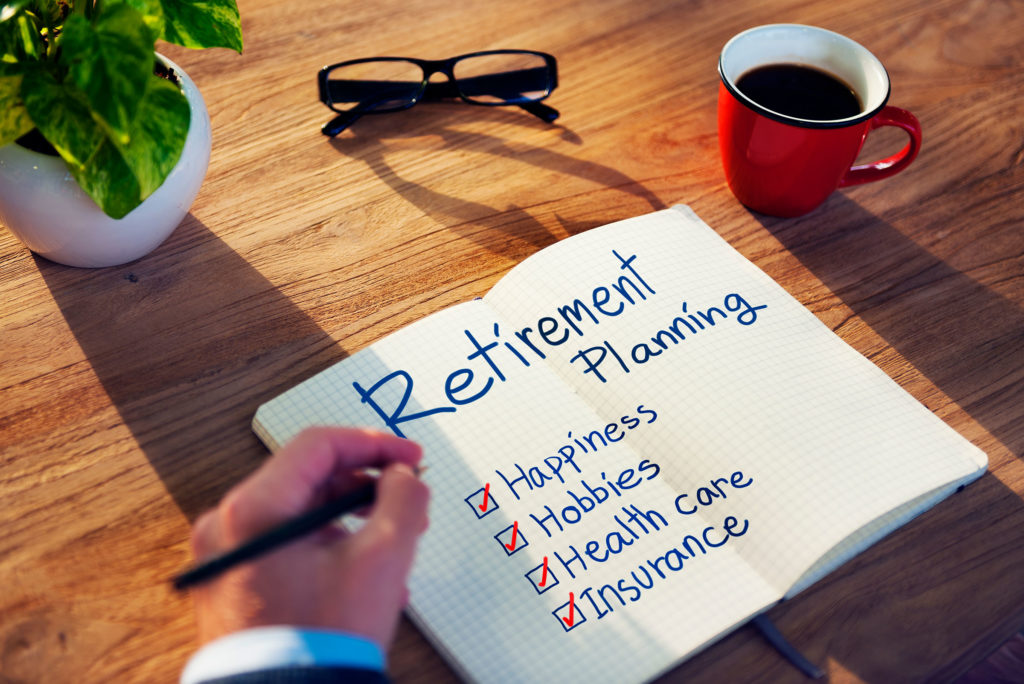
Retirement is wonderful. You are then free to do everything for which you never had the time when working a full-time job. Whether it is from age 60, 65, or 70, everyone looks forward to enjoying their retirement. So should you.
However, are you adequately prepared for a happy retirement? If your answer is no, you can still get on track now and your future self will thank you for it. It pays to plan for your retirement as early as possible. Although you may not be retiring anytime soon, it is a smart decision to save and prepare for the future at any age.
The goal of retirement planning is to gain financial freedom. You can plan for your retirement with these four steps as a guide.
1. Start Early
It is always a good idea to be prepared for the future. In any venture, this helps you to produce early results. Suppose you begin saving from age 30 at a rate of $1,000 every year for a long time, and your partner begins when he is 45. You both contribute a similar sum each for a period of 20 years.
Even if your partner saved twice the sum you did per month, because you began saving before him or her, you could land up having more than twice as much cash when the time comes to resign, because of the compound interest your account has earned. You don’t simply add on to what you save each year, the basic amount earns compound interest every year. Because of this, you stand to make much more out of saving for retirement. Be that as it may, your savings need to grow steadily for a significant period of time.
2. Know your Retirement Needs
Specialists estimate that you will require more than 50% of your basic salary to maintain your standard of living after you stop working. Retirement needs are people specific. To work out how much you need to save, start by thinking about how long you will be retired, what sort of lifestyle you will want, and where you will live.
Kiwis are lucky because NZ Super is not means-tested. It is a universal amount that equates to 66% of the average wage. With the free public healthcare system easing off health costs and similar financial burdens, health needs are catered for. You should take all of these into consideration when planning for your retirement. Work out how much you’ll need to save for your retirement, depending on the lifestyle you would like, with the retirement planner.
3. Save, Invest and Save Some More
After working out your retirement needs carefully, you need to ask yourself where the money will come from. The simple answer is YOU! You can fund your retirement through savings, and contributing to your employer’s retirement plan. All these work in almost the same manner. Money is tied down for your future use.
If you have already started saving, whether for retirement or another goal, keep it up! Saving is always rewarding. If you have not been saving, now is the time to get started. Start small, build the habit and work towards increasing the amount you save each month. The sooner you start saving, the more time your money has to grow. Saving for your retirement should be a priority. Structure a plan, follow it strictly, and set realistic goals. Remember, it’s never too early or too late to start saving.
Set up your KiwiSaver settings properly so money can accumulate there without you having to do too much. You should work at contributing 3% of your pay, while another 3% should come from your company if you are employed. To get the government contribution of $521, your target should be $1042 per year.
There are a plethora of reasons why you might consider saving more. If you intend on getting a house, and even if you don’t, contributing more to KiwiSaver is important, because you need to have more savings to cover the cost of renting in retirement. Who can join KiwiSaver shows you how to set up your KiwiSaver scheme.
You can get the required information about KiwiSaver on the government website sorted.org.nz. Investing can make your savings grow faster but you need to determine your investor profile and what kind of investment works best for you, and the Investor Kickstarter tool helps you choose the right mix of investments.
4. Avoid Debts
As much as possible, you should avoid any purchases or actions that will place you in debt when planning for your retirement. Your focus should be on saving and investing. A debt profile should be avoided by any means possible. Look to stay debt-free and protect your net worth. If it seems you may go into retirement with some debts, consider factoring the repayment into your overall retirement plan.
When to Retire
When is a good time to retire? The answer to this question depends on your personal needs and circumstances, not to mention your personality and future plans. Although leaving the workplace early can sound like a dream, if you are not financially ready to survive without a paycheque it can become challenging.
For a long time, the retirement age has generally been set at 65, partly due to social security benefit rules. Workers in the United States could receive sustainable retirement benefits starting at age 65 in 1940 when the Social Security programme first began.
The retirement age depends on the country. New Zealand does not have an official retirement age. Many people plan to retire between the ages of 62 and 65, which is the point where most pension plans, including the government-funded New Zealand superannuation (NZ Super), begins to pay out. For those aged 65 and over, NZ Super is paid every two weeks. You must have met the following requirements to qualify:
- You must have lived in New Zealand for at least 10 years, and have lived here since you turned 20.
- After you turn 50, you should have spent five of the 10 years living in the country.
Living in Retirement
You may have planned the retirement of your dreams to include sipping drinks on a beach, on a patio in a luxurious mountain resort or travelling the world. However, it does indeed take careful financial planning to realise such dreams. Financial retirement security doesn’t just happen. It takes planning, consistent engagement, and money.
Even after retirement, you need to secure your finances. If you don’t, you’re going to put yourself and your family in a not-so-desirable position. So what can you do to ensure your retirement is enjoyable and stress-free?
Budgeting: Factors such as your retirement date, taxes, part-time income, spending, inflation, and rate of return on savings and investments can all affect your retirement income. These factors are inevitable as you don’t really have control over them. The good thing is that you can control one vital factor: your spending.
After retirement, you may feel the temptation to start to dip into the huge sum you’ve saved and start checking items off your bucket list. However, over-spending can be financially dangerous; you need to manage your savings wisely, likely for decades. A good, detailed budget helps you live within your means, enjoy your life, and make your savings last as long as possible.
Ways to save: Review your expenditure carefully r over the past few months. See whether there are spending habits you can drop, such as avoiding eating out or limiting the number of times you do so, or abandoning a membership you no longer use. Keep track of your spending. Note extravagant purchases and look for ways to save.
Protect your assets: You can protect your assets by writing a will, creating a trust or finding a safety net in insurance. It is important that your assets are protected as accidents can happen and even lawsuits can arise at any time.
Where to live: depending on your budget, you need to decide on the most convenient living option for you. It should be an option that you can maintain in the long term.
Having a regular income: Going into retirement doesn’t mean we stop earning an income. Income can come from savings, paid work or business activities.
Living in retirement can be relaxing and fun if properly planned for. Get on track today and start working towards a safe retirement.
FAQs
What should I do when I retire?
Retirement travels: Go on day trips, cruises, overseas travel or tour each of the adjacent nations. Take up new hobbies. Volunteer as much as possible for as long as you can.
When you are planning your retirement, should you consider moving to an area with lower living costs?
That surely would be one factor to consider in your assessment. The reasons and factors that go into your decision are many. You need to decide which aspects are essential and which are not.
Will the relocation expense be affordable? Does your planned destination offer suitable amenities to suit your needs, such as churches, clubs, hospitals and so on? Consider your budget and how long you can support the cost of living in your chosen location.
Should younger people be planning for retirement?
It is a smart thing for someone of any age to save and prepare for the future and planning for retirements is no different. The value of time is the advantage which younger people have and should use.
Let’s say a company has maintained an average return on investment of 8%, and this is where you’ve invested your money, then your money will double every nine years. Let’s say you plan to retire when you’re 67 years old (45 years from now). This means that if the 8% ROI average continues, any money you’d invested in an IRA today, would double 5 times. In hard dollars, this means an investment worth $1000 in nine years, $4,000 in 18 years, $8,000 in 27 years, $16,000 in 36 years and $32,000 in 45 years would be worth $20000. In other words, if you retire today $1 is worth $32 in 45 years’ time.
Why do you need retirement planning?
You’ve no sooner celebrated your first paycheque and before you know it, they cut the cake after a few decades to wish you all the best for your retirement. Once retired, you’ll have to face daily living expenses, medical costs and fighting inflation.
In old age, emergencies are always more than possible. Therefore, it’s important to have ample funds behind you to cope with all these uncertainties. That is precisely why you need to plan for retirement.






